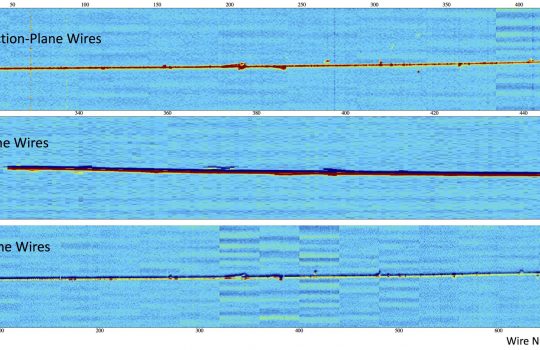Early tests pave the way for a giant neutrino detector
From Science News, Sept. 18, 2018: An enormous future particle detector is now within closer reach. The first data from a prototype experiment, ProtoDUNE, hint that scientists may have what it takes to build the planned neutrino detector.

